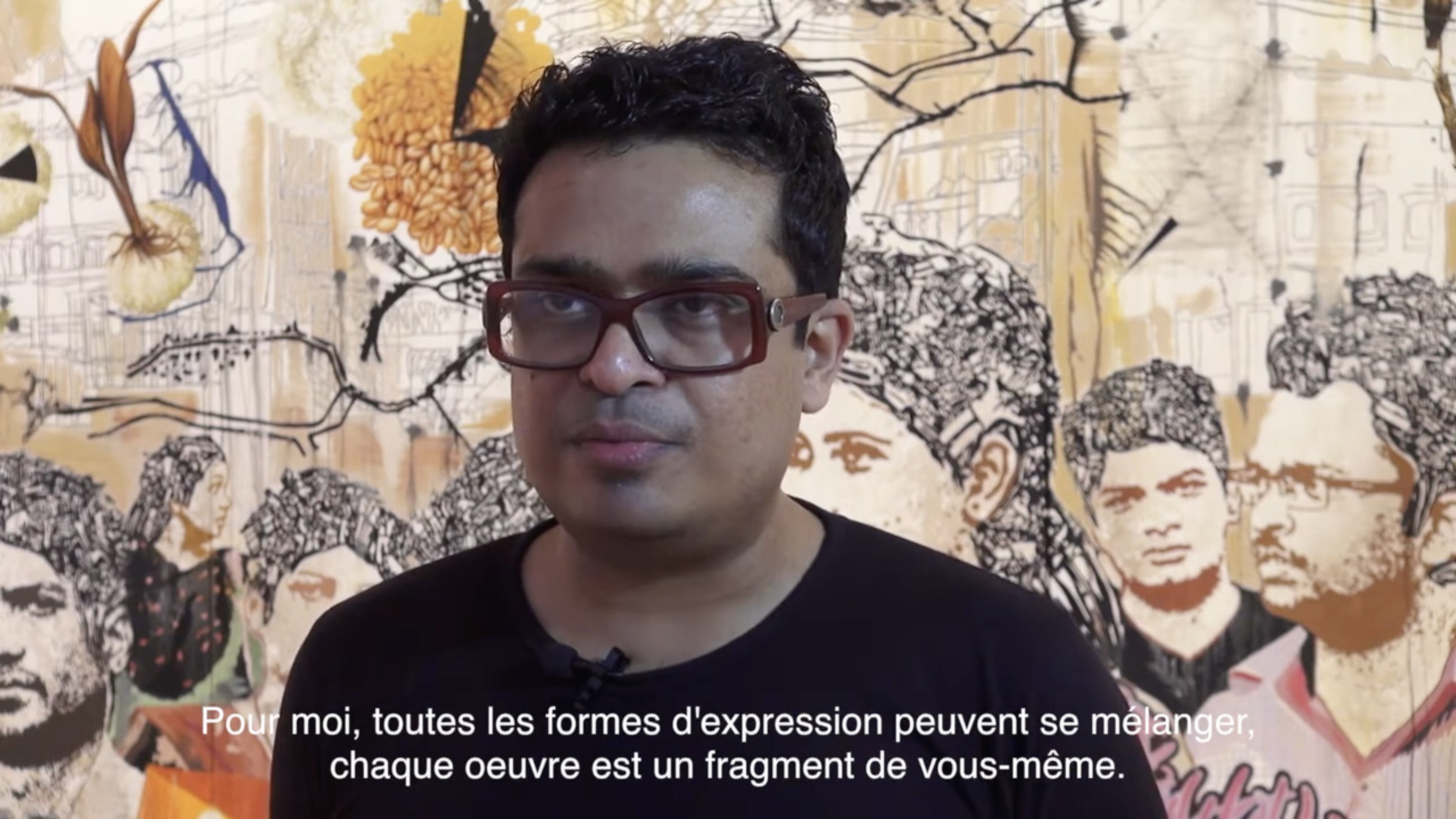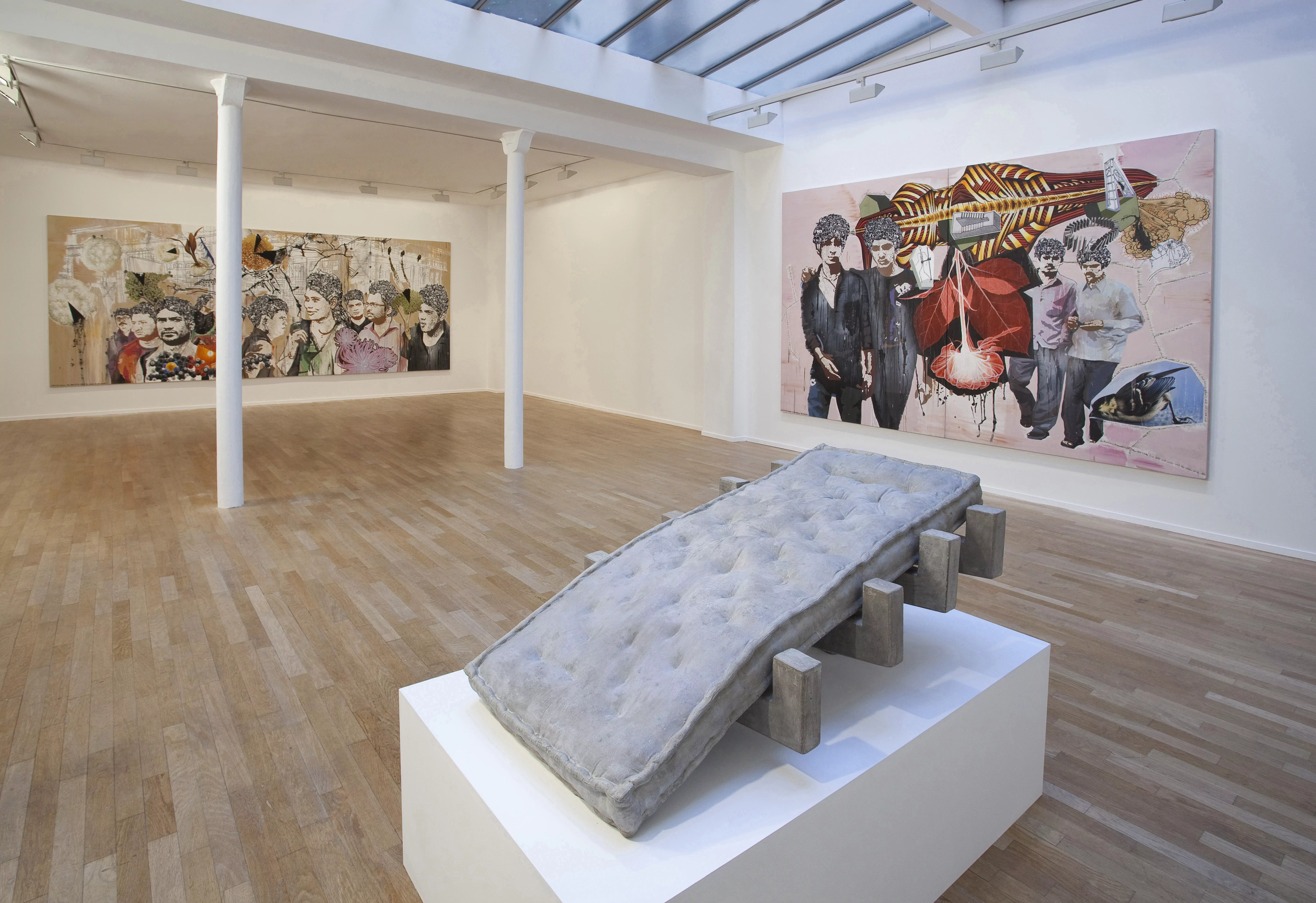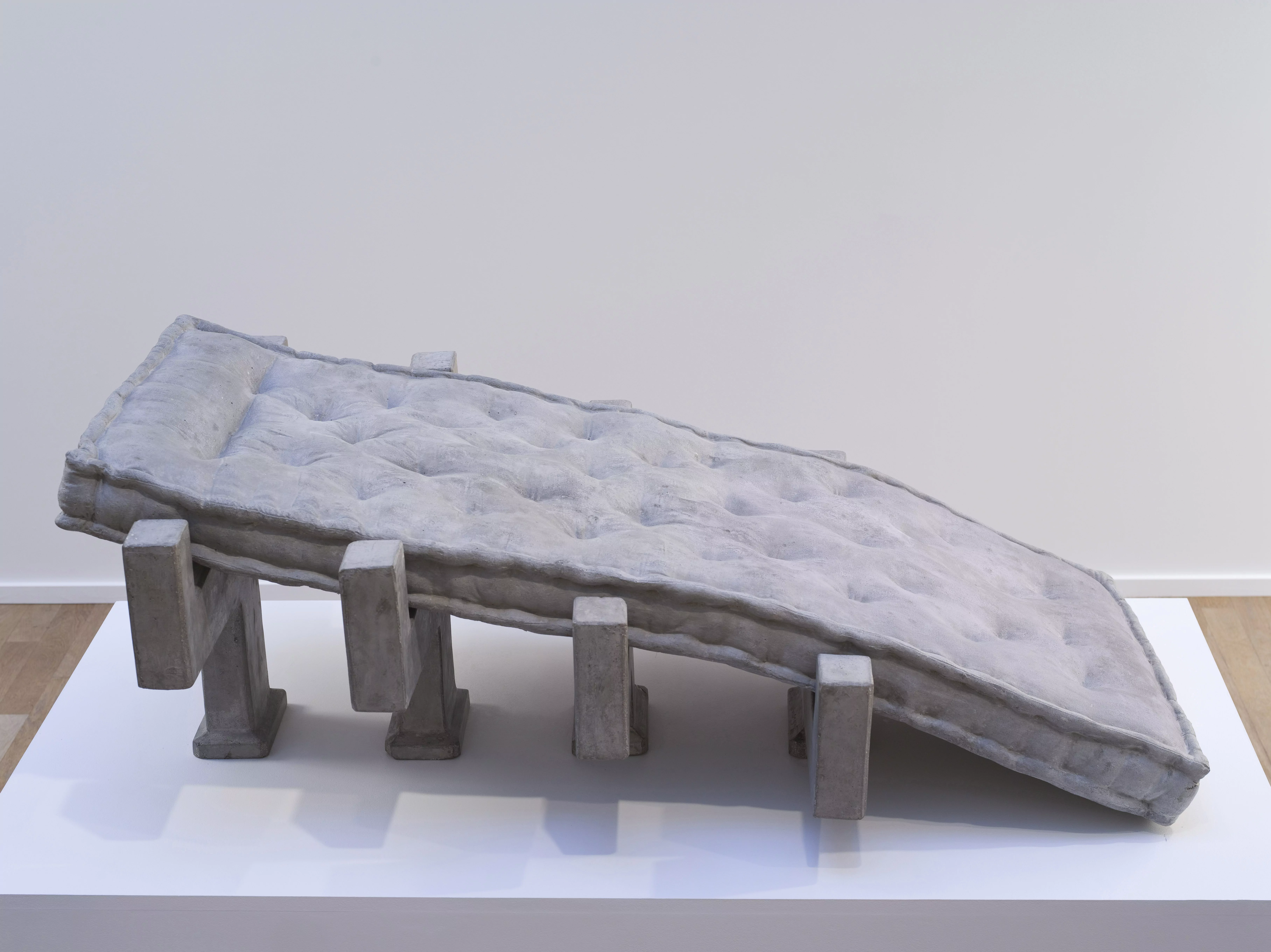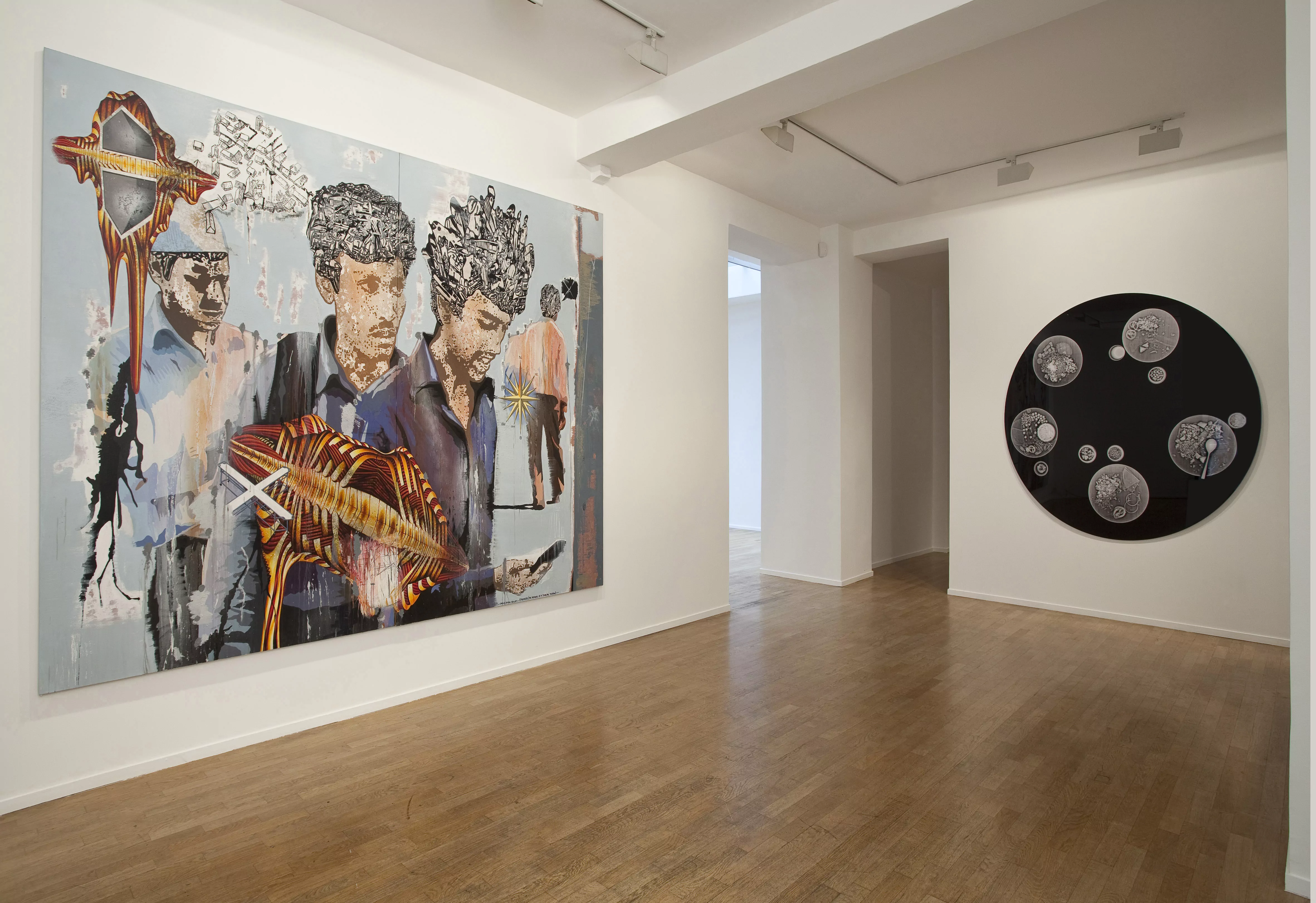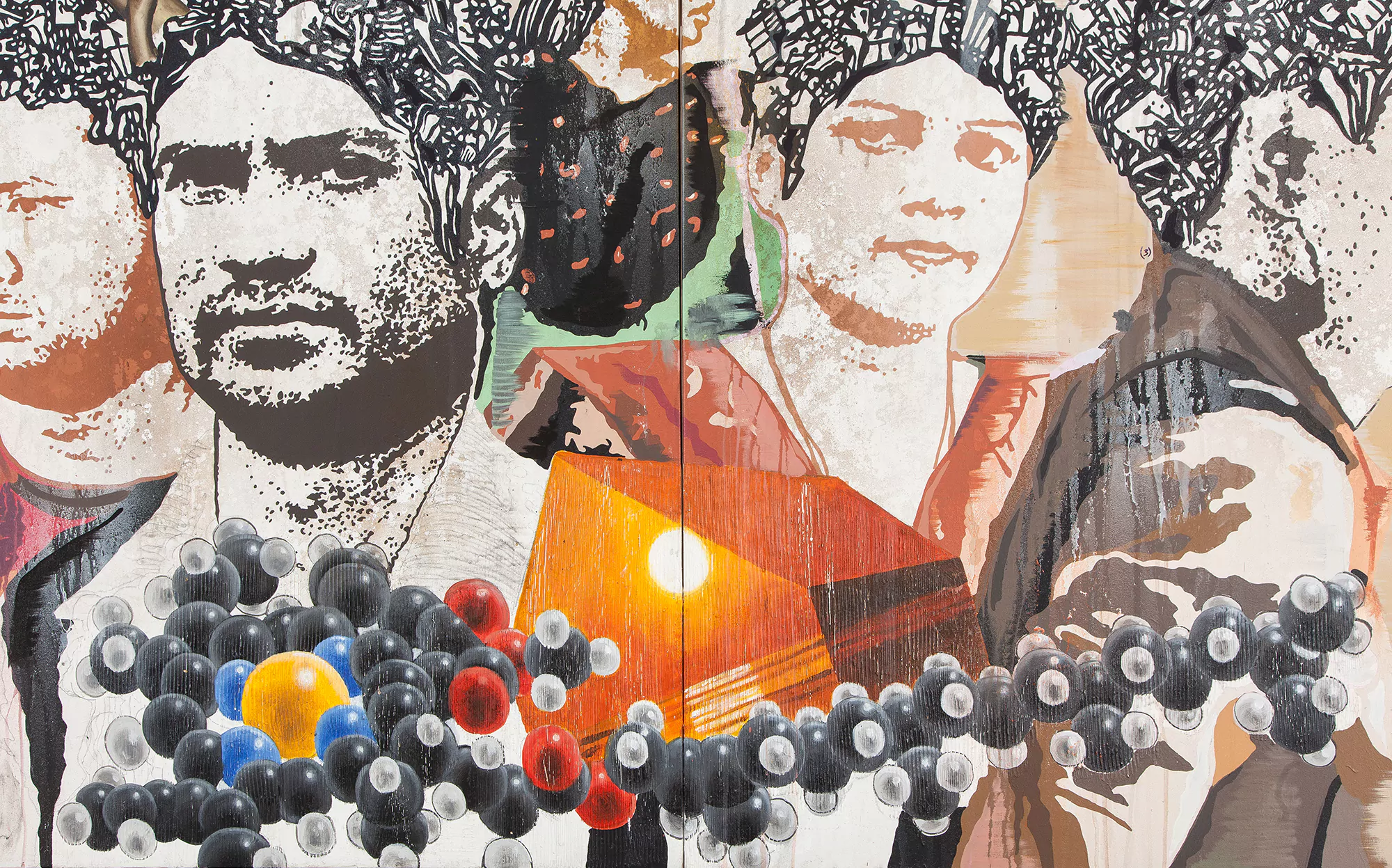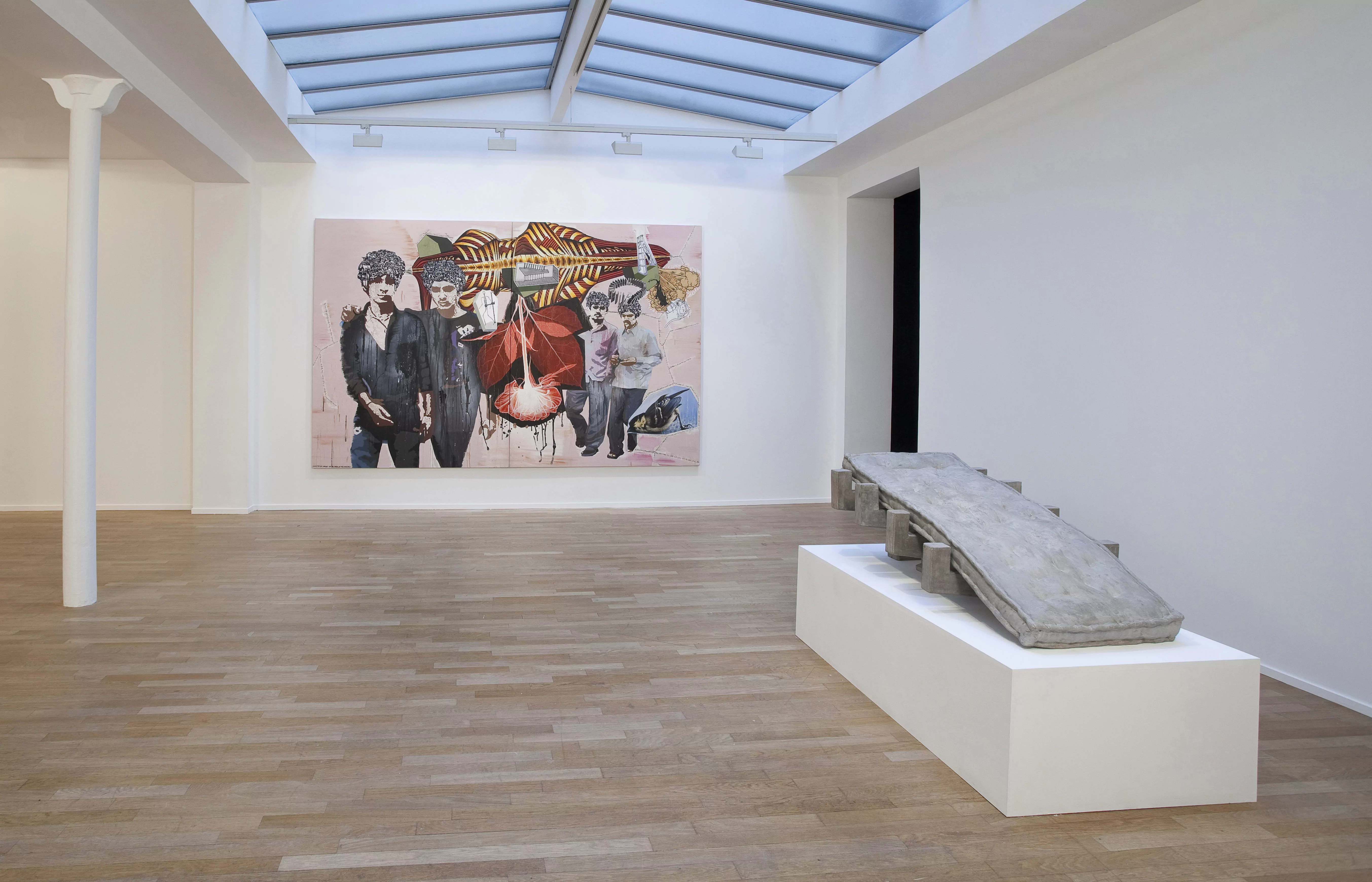
Jitish Kallat
The Hour of the Day of the Month of the Season
Galerie Daniel Templon is celebrating the new season with the first ever French solo exhibition of work by Indian artist Jitish Kallat, a stimulating voice on the contemporary art scene in recent years.
Known for his seminal shows such as ‘Public Notice 3’, his year-long solo exhibition at the Art Institute of Chicago or photographic installations such as Epilogue with its 22,000 moons made of Indian breads, Jitish Kallat will be taking visitors on an evocative journey through the two Galerie Templon spaces with a complex series of works in mixed media: painting, sculpture, text, photography and video.
Through his wide mediumistic repertoire, Jitish Kallat converts a chronicle of the cycle of life in a fast-transforming India, into arresting artworks. His works emerge out of varied autobiographical, art-historical and political references. Weaving together strands of sociology, biology and archaeology, the artist takes an ironic and poetic look at the altered relationship between nature and culture, the strangeness that lies at the heart of everyday life, the enduring presence of the spiritual at the heart of material deterioration.
For his exhibition at the gallery, the artist is focusing on simple everyday experiences such as sleep, being searched at a checkpoint, commuting or dining. By altering scale or form, he shifts from familiarity to off-kilter visual conundrums and metaphoric associations imbued with a playful ambiguity and deeper meaning.
Jitish Kallat deliberately places divergent fields of stimuli next to each other as if to force a dialogue between representation and abstraction, history and myth, the past and the present, the identifiable and the incongruous. Shown in ‘The Hour of the Day of the Month of the Season’, plates left at the dinner table become a constellation of planets, a mattress metamorphoses into a motorway bridge, seven rotis (an Indian bread) become lunar cycles that appear out of nowhere only to vanish once again.
An installation of reduced-scale sculptures takes the form of a miniature allegorical theatre, where the poses struck by the characters, travellers being searched at an airport checkpoint, bring to mind a ceremonial dance. In the artist’s recent paintings, a daily commute becomes a fertile breeding ground for a range of imagery, to erupt, festooning a given moment with densely layered meaning.
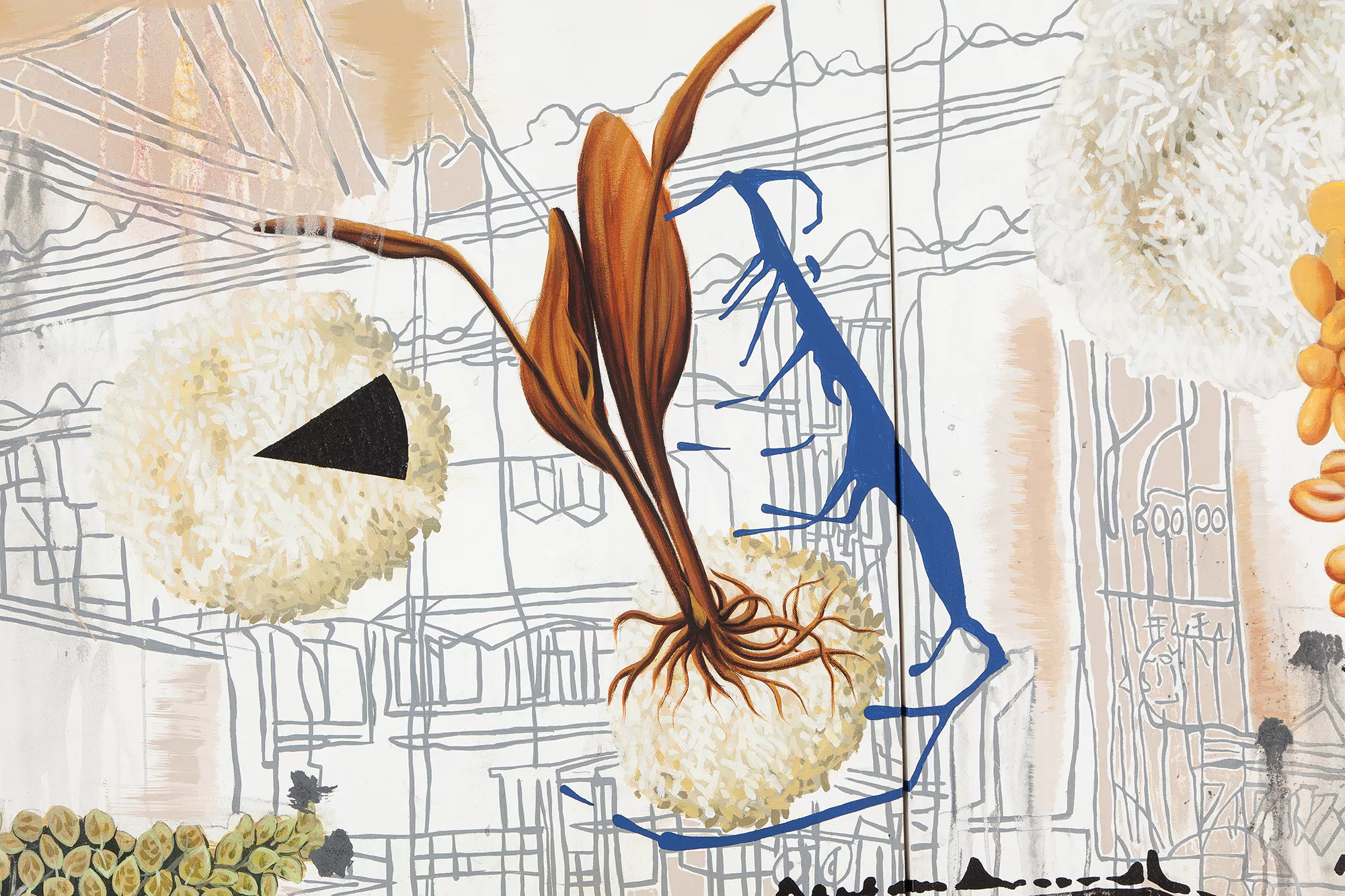
The artist
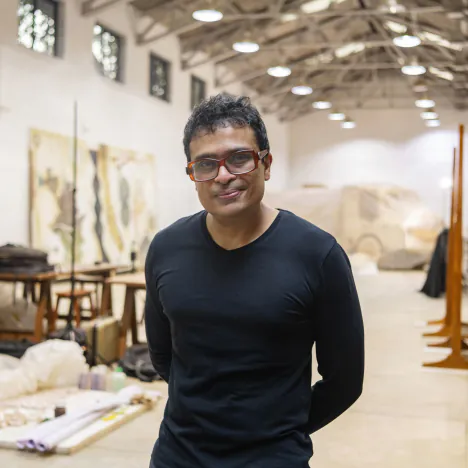
Born in 1974 in Mumbai, Jitish Kallat is one of the most promising artists of his generation. Jitish Kallat’s work, imbued with autobiographical, political and artistic references, forms a narrative of the cycle of life in a rapidly changing India. Weaving together strands of sociology, biology and archaeology, the artist takes an ironic and poetic look at the altered relationship between nature and culture.
